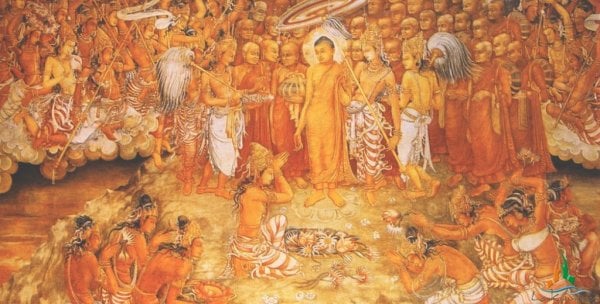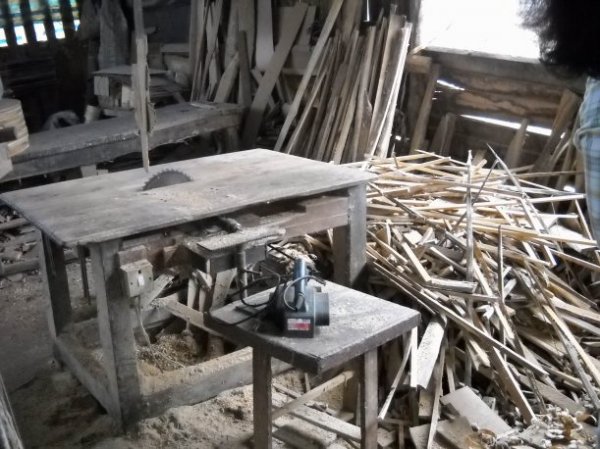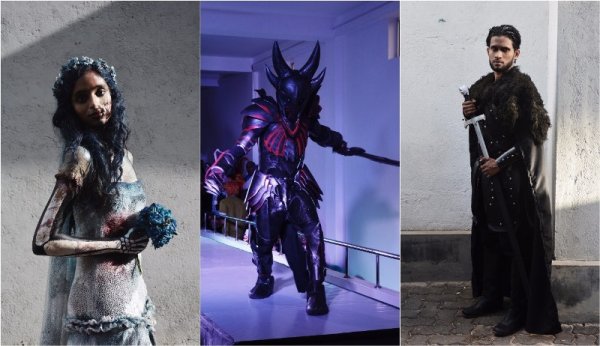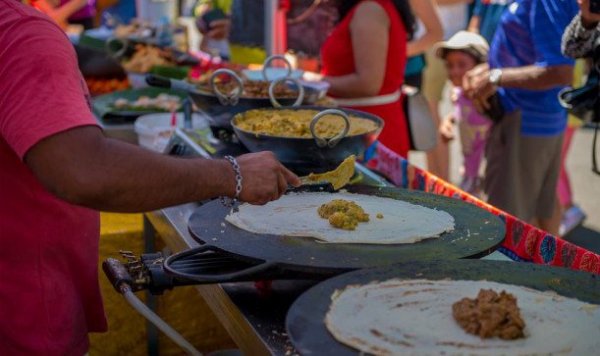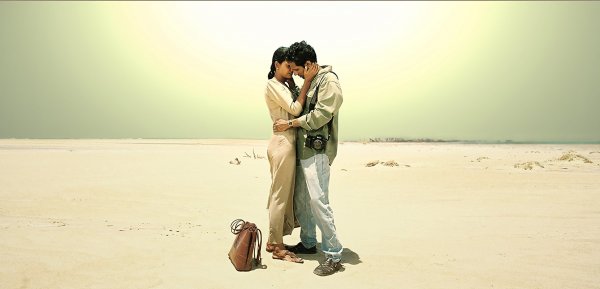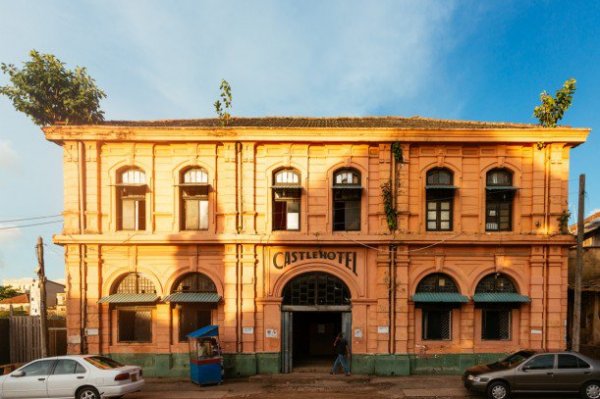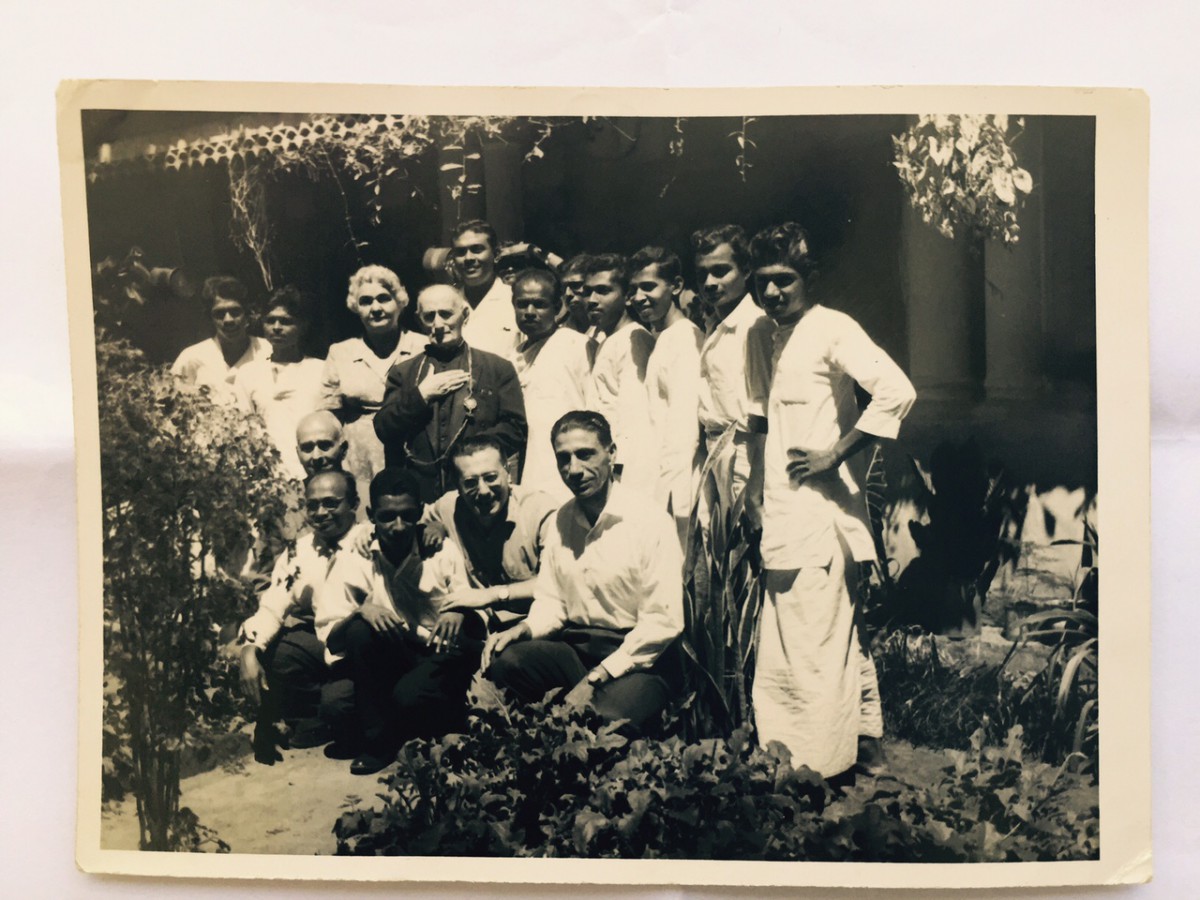
“An investigation of truth is each one’s responsibility.”- Bahá’u’lláh, founder of the Bahá’í faith.
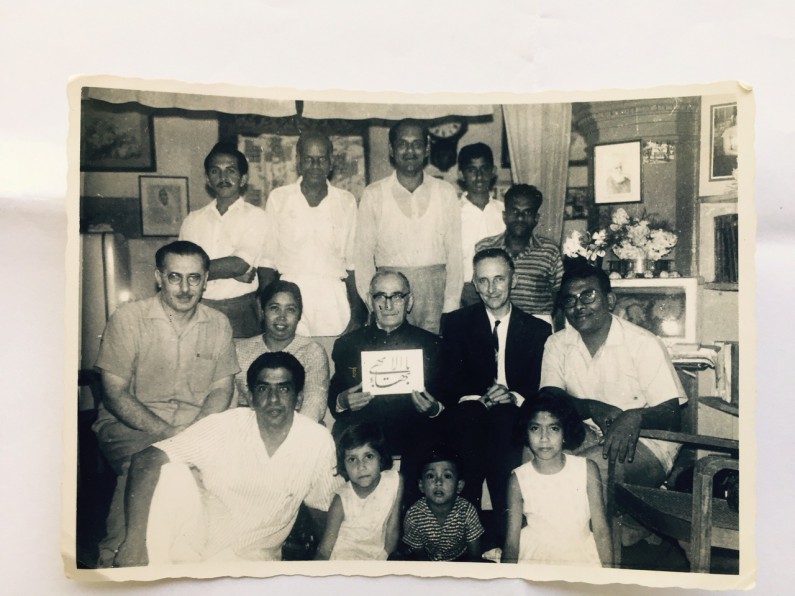
An undated photograph of Bahá’í community members. Image Courtesy of the Spiritual Assembly of the Bahá’ís of Sri Lanka.
In 1949, one year after Sri Lanka gained independence, a Persian doctor established his clinic in a little corner of Slave Island. Known as Dr. Luqmani, the doctor was well loved and respected amongst the local community. Being deeply religious, his ritual chanting of prayers eventually piqued the curiosity of the youth in the area, who learned that he was a follower of the Bahá’í faith. Wanting to know more, they met up for several discussions, which led to a handful of young people from Tamil and Muslim communities accepting Dr. Luqmani’s faith. And thus, the Bahá’í faith gradually assimilated itself alongside Sri Lanka’s existing faiths, albeit in an unobtrusive manner that is still upheld strictly.
‘An Investigation of Truth.’
“We believe that religion is a progressive thing. God sends his message at different times based on the different needs of mankind, and religion progressively evolves,” said Niroshini Anuradha Salley, an Auxiliary Board Member at the Bahá’í National Centre in Colombo.
The focus of the Bahá’í faith is on the ‘oneness of religion’. The faith is almost an amalgamation of the existing major religions including Abrahamic religions, Buddhism, and Hinduism, while being completely independent of them. The Bahá’í beliefs centre around oneness and peace; the oneness of God, religion and humanity, of freedom from prejudice, equality for all, and the harmony between science and religion. They have nine Continental Temples, with one in each continent. We were told that each temple has nine doors, to represent the nine main world religions, and that the doors were open to any person, regardless of faith, caste, creed and other factors.
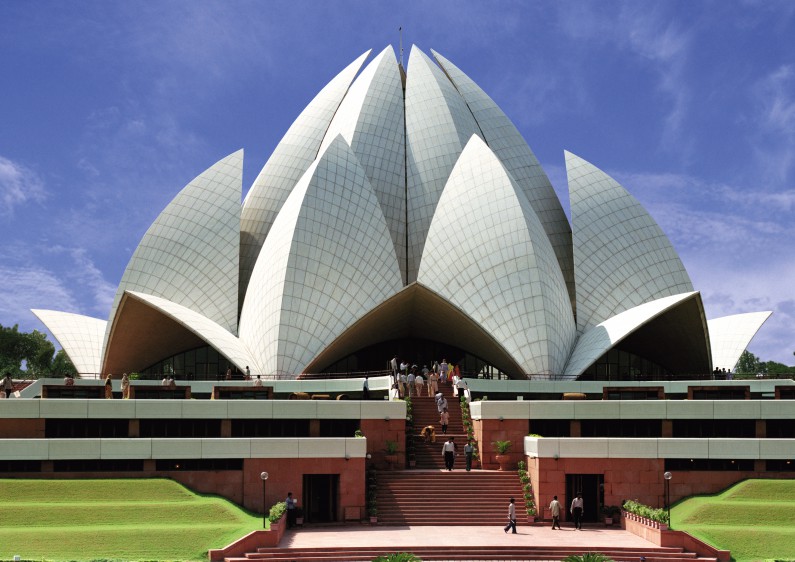
Baha’i House of Worship, New Delhi, India. Image Courtesy of the Spiritual Assembly of the Bahá’ís of Sri Lanka.
The closest temple in the region is the Lotus Temple in New Delhi—one of the most-visited buildings in the world. Built of marble, the nine sides of the temple are made of 27 white marble ‘petals’, and the structure is often described as offering the illusion of floating over ten hectares of beautifully manicured lawns.
As opposed to appointing monks, priests, moulavis or other types of spiritual leaders, the Bahá’ís form a Spiritual Assembly in each country where they are present, given that there are enough mature and responsible believers of the faith. Elected through a secret vote, the qualifications for the members of the Assembly are based on character and morals as opposed to professional or academic qualifications. The elected officials are required to fulfil five tenets: unquestionable loyalty, a well-trained mind, mature experience, selfless devotion, and recognised ability. Their duties are to ensure the community’s moral development, and maintain peace and harmony. Conversion, or acceptance of the faith, means that old faiths are left behind.
The book they follow is the Kitab i-Aqdas, the Most Holy Book. Believed to be written by Bahá’u’lláh, the founder of the faith, in 1873, the book is their central source for guidance and laws. Bahá’u’lláh, who was born to a noble family in Persia in 1817, claimed to be a Manifestation of God, the equivalent of a prophet in the Bahá’í faith. Bahá’ís were persecuted in the Middle East, especially as they were considered apostates of Islam. It is believed that the Bahá’u’lláh received his revelations while he was imprisoned.
In keeping with the tenets of the faith, in the event of misconduct by anyone in the community, the National Assembly intervenes, and in the worst-case scenario, deprives the offender of their voting rights. They do not have, or condone, any rigorous punishment.
The Bahá’í Community In Sri Lanka

The community at a gathering in Kandy, Sri Lanka. Image courtesy of the Spiritual Assembly of the Bahá’ís of Sri Lanka.
After Dr. Luqmani’s arrival and through his subsequent friendships, the religion started to grow in Sri Lanka. However, attempts to convert people into the faith are strictly prohibited, thus making growth possible purely through discovery and acceptance.
As of now, there are approximately 5,000 people of the Bahá’í faith in the country. Acceptance into the faith is a relatively simple process: the National Centre is open for all, and the community’s Secretary and other administrative members are friendly and approachable. There is no paperwork involved, except for signing a card for statistical information to be added to the community database.
Dinesh Thilakaratne, the Secretary of the Centre, told us that most Bahá’ís in Sri Lanka are in the Central, Northern and Western Provinces, with the highest concentrations in the Hatton, Badulla, and Kandy Areas. Given that it’s an organic faith and not an ethnicity, there are Sinhala, Tamil, and Moorish Bahá’í here as well.
They have separate marriage vows, and a private ceremony to observe it, even though their marriages are officially registered under the General Marriage Registrations Ordinance (GMRO). The vows are performed by the local Spiritual Assembly wherever the marriage reception is conducted, which could be at the couple’s home, or a reception hall. While there are no rules regarding whom one can marry or not (members of the community are free to marry people of different religious beliefs), parental consent from both parties is mandatory. In keeping with the customs of the international Bahá’í community, they observe a 19-day period of fasting. The end of the fasting period is celebrated with the Persian festival, Nawruz. Their prayers are obligatory for everyone over the age of 15, except for the elderly and infirm. The Bahá’í have the option of choosing from three prayers of different lengths, which they should perform daily. The shortest prayer is of only one verse to be recited at midday, whereas the medium length prayer is recited at morning, noon, and evening. The longest prayer can be recited once every 24 hours at whatever time the supplicant feels inclined to do so.
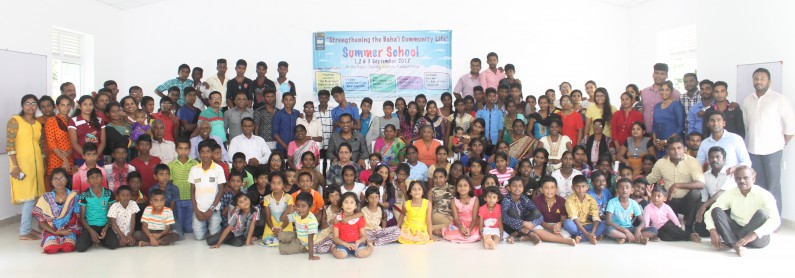
A Summer school programme in Kadugannawa, organised by and for theBahá’í community. Image Courtesy of the Spiritual Assembly of the Bahá’ís of Sri Lanka.
Given that service to the community they live in is a priority within the Bahá’í community, Salley pointed out that they organise several community events. From study circles to youth programmes on leadership and speech skills, the events are all based on human development and are, once again, open to all.
Salley first learned about the faith from a Persian acquaintance working here, before embracing it at the age of 16. Likewise, Thilakaratne heard about it through a friend before reading more and later accepting the faith. Neither of them sees it as something which conflicts with other beliefs, but think of it as a progression instead. “For instance, grades four and six in school aren’t better or worse than grade five. They are just different steps as you go through life,” said Salley.
The Bahá’ís are a deeply spiritual religious community who were initially persecuted in Iran, the country of its birthplace. Their appeals to the United Nations to intervene in 1955 were successful, and the persecution eventually lifted off. According to An Introduction to the Bahá’í Faith: All Things Made New, the Faith is gradually gaining international recognition as an independent world religion. There are approximately 5 million members of the faith worldwide, though they are not officially recognised in Sri Lanka as yet.
Cover image courtesy of the Spiritual Assembly of the Bahá’ís of Sri Lanka.

